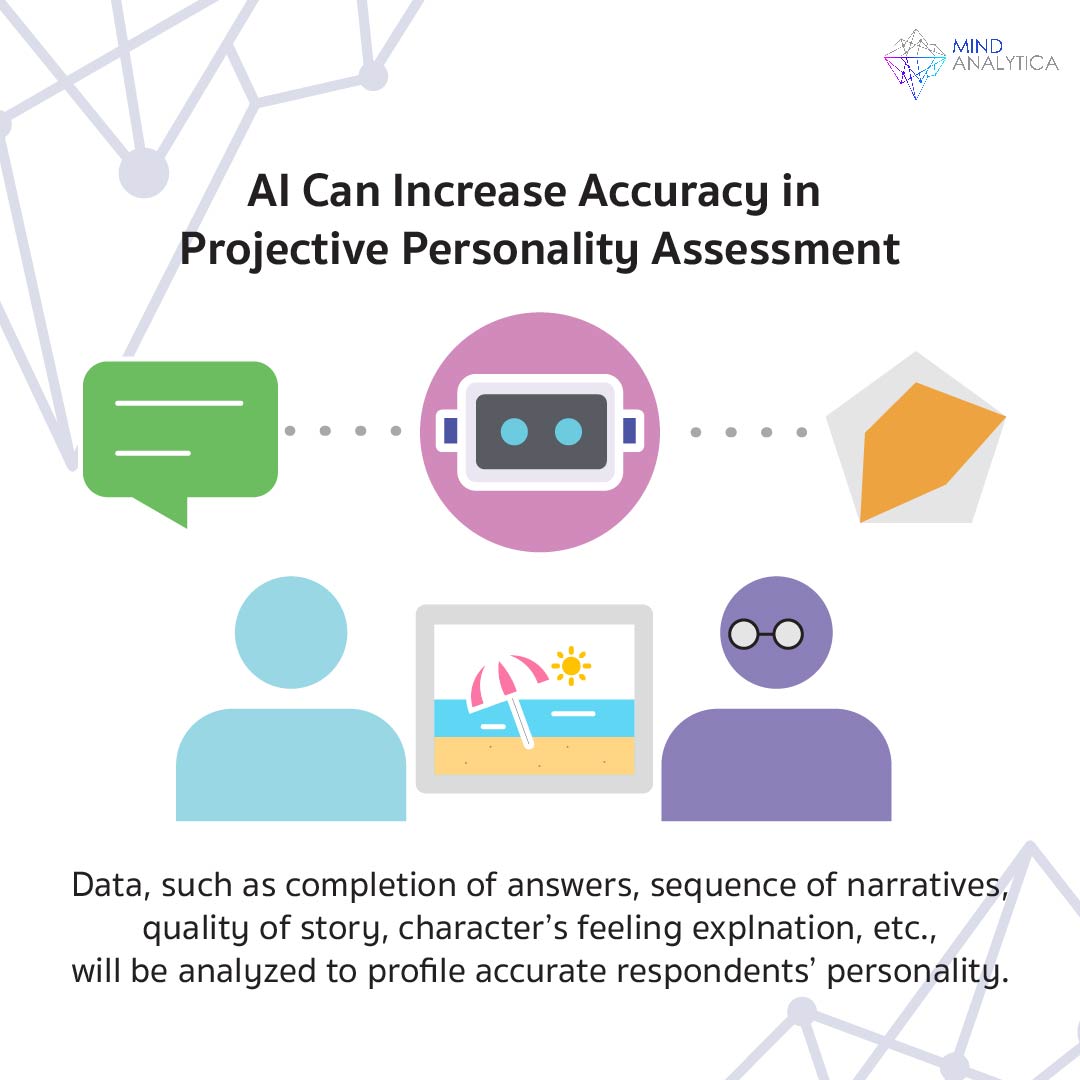AI Can Increase Accuracy of Projective Personality Assessments
19 พฤษภาคม 2566 - เวลาอ่าน 3 นาที
There are various methods for psychological personality assessment, including questionnaires and evaluating others. Clinical psychologists often use projective techniques to assess the personalities of individuals with psychological abnormalities. One such technique is Rorschach's inkblot images, which can be interpreted in many ways. Clinical psychologists show these images to participants and ask them to explain their meaning. Certain types of responses can indicate psychological abnormalities. Almost 100 years old, this technique requires expertise to interpret the answers. However, AI can now assist in this process.
Researchers in Brazil published a study in 2021 showing that AI can be used to interpret responses from the Thematic Apperception Test (TAT). Initially, this test used ambiguous black-and-white images of various scenes, such as a man and a woman looking in opposite directions. Participants must explain what events are occurring in the picture, what happened before, how the story ends, and the thoughts and feelings of the characters. Typically, clinical psychologists use these responses to evaluate whether the participant has psychological abnormalities.
The researchers collected data from 100 people in São Paulo and converted their spoken responses into text. This text data was then transformed into 1,000 frequently used word groups in this context using the Bag-of-Words technique. The word groups were used to predict various aspects of the participant's responses, such as their ability to describe the image independently (predicted with 77% accuracy), whether they answered all questions (71% accuracy), the correctness of the story sequence (88% accuracy), the quality of the story (81% accuracy), their ability to explain characters' feelings (65% accuracy), and whether the story's environment promotes or pressures the characters (86% accuracy). With these relatively high prediction rates, clinical psychologists can use AI to help assess the quality of responses and make it easier to evaluate participants' personalities.
Though the data collected included responses to 20 images, the small sample size may limit the model's ability to generalize to other samples. The techniques used in this study, such as Bag-of-Words, are older Natural Language Processing (NLP) methods, while newer techniques like Transformers could improve prediction accuracy. This evidence suggests that AI could assist clinical psychologists in assessing personality through storytelling techniques in the future, not only with TAT but also with other methods like Rorschach inkblots or Draw-a-Person Test.
Practical applications. Individual assessments in clinical psychology are resource-intensive and time-consuming. Utilizing AI in personality assessments significantly reduces the workload for clinical psychologists and, if well-developed, helps establish assessment standards. Currently, different psychologists may have varying interpretations of the same response. This article highlights the need to promote research in this area to improve the efficiency of clinical psychologists' work.
Our services. For personality and psychology researchers and personnel assessment practitioners, AI system development service is available to interpret data from projective personality assessment specifically. Data collection, AI model training, and interpretation with statistical and data scientific methods will be implemented to ensure the most valid, accurate, and convenient to utilize personality results.



